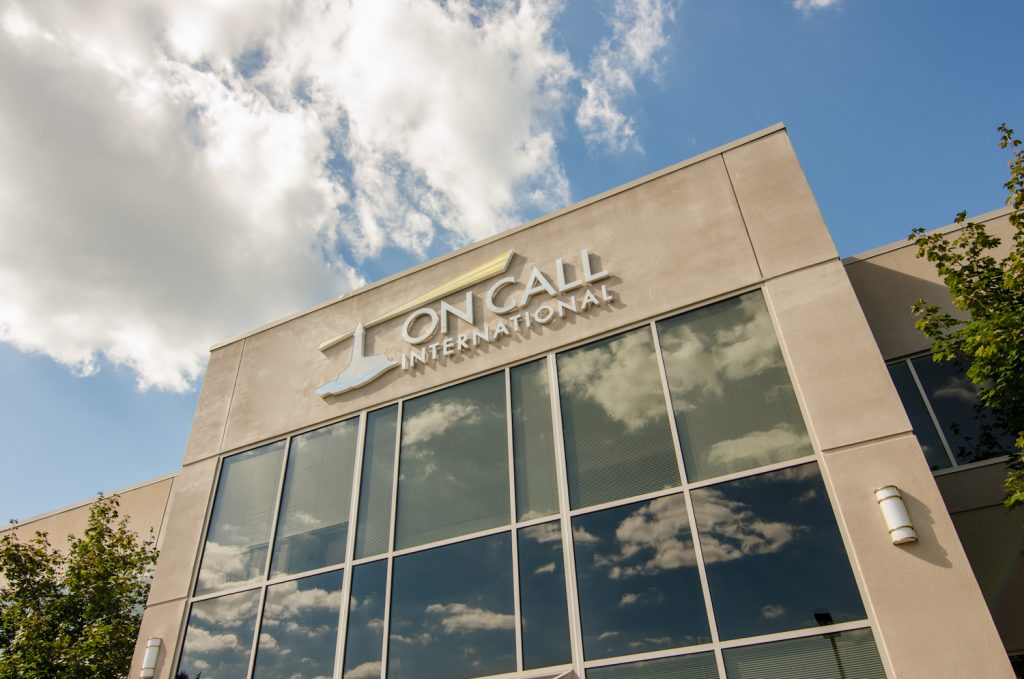Sub-Saharan Africa
Ebola Spreads to Neighboring Uganda From DRC
Two cases of deaths due to Ebola Virus Disease (EVD) were reported in Uganda in mid-June. Ever since the Ebola outbreak in the Democratic Republic of Congo (DRC), Uganda has been monitoring the situation in the neighboring country. Porous borders and the high number of refugees from DRC poses a significant risk in containing the spread of the disease. According to the United Nations High Commission for Refugees (UNHCR), Uganda hosts more than 345,000 Congolese refugees fleeing violence in active conflict zones, which are also the areas hit by Ebola.
The ten-month old Ebola outbreak in the Democratic Republic of Congo has claimed more than 1,500 lives. There have been more than 2,000 cases of Ebola reported in the DRC. The situation has been made worse due to the guerrilla warfare, increased conflict, attacks on health workers, growing community mistrust and lack of vaccination, and the medical facilities. Ebola has impacted the two provinces of Congo – Kivu and Ituri – that are known to be intensive conflict zones. All these factors have acted as a force multiplier and prevented timely management of the Ebola virus in the DRC, in turn, putting neighboring countries such as Uganda and Rwanda at risk of contracting the same virus. Already, Ebola has spread to the nearby country of Uganda, with health agencies beginning to report cases since mid-June.
Since June 2019, the WHO has reported 112 people in Uganda who have come into contact with the Ebola virus, quarantining them thereafter. So far, two deaths have been confirmed due to Ebola in Uganda. In light of this, Uganda is on high alert due to the porous borders the countries share, making containment a huge challenge. Preempting a large-scale outbreak of Ebola, Ugandan authorities, including the science and drug agencies, approved three new experimental treatments on June 18. Additionally, Uganda plans to implement stringent border controls and travel restrictions to curtail the spread of Ebola into the country. The government has banned public gatherings in the Kasese district after the deaths caused by Ebola. As of June 23, no new cases of Ebola have been reported in the border area of Kasese district or any other part of Uganda. Currently, there are no travel bans imposed by the Ugandan government for international travelers.
International organizations, including the WHO, are trying to control the spread of Ebola in Congo as well as neighboring countries – otherwise, the epidemic has the potential to cause mass deaths in the region. Touted as the world’s second largest Ebola outbreak, the Ebola spread is worrying international and regional health experts because, despite people receiving vaccinations, the disease is steadily on the rise. Keeping these factors in perspective, Uganda and Rwanda are already on a high alert against the spread of the disease. The coming weeks are crucial for both countries, especially Uganda, to implement active measures, monitor the situation, and assess alternatives to identify channels to contain the virus.
Middle East and North Africa
Political and Religious Tensions Escalate in East Jerusalem
In recent months, East Jerusalem has become a flashpoint in the Israel-Palestinian conflict, with both religious and political tensions on the rise, due to several reasons. These include attempts by certain groups in Israel to secure greater Jewish access and rights to worship at the Al Aqsa mosque compound in old Jerusalem, which is administered by the Jordanian Waqf Board. Another reason is Israeli efforts to change the demographic and cultural composition of Palestinian areas of East Jerusalem. These actions, which have often been ‘aided’ by U.S. leniency, have had broad-ranging repercussions – from the increased Israel-Palestine tensions, regional disagreements between the Arab states, and further erosion of the ‘two-state’ solution.
Over the last two months, a renewed crisis has broken out at the Temple Mount/Al Aqsa compound over questions of control, access, and security at the site. The area is a part of Israel which has, in recent times, placed entry restrictions on Palestinian Muslims to accommodate the entry of increasingly large groups of Jewish activists. In the latest flashpoint, riots broke out at the site on Jerusalem Day (June 1), when Israeli authorities allowed Jewish settlers to enter the compound, which generally remains closed to them during the last ten days of Ramadan. Palestinians inside the mosque protested by throwing objects, prompting Israeli forces to use riot control measures and subsequently lock the mosque. Tensions remained high as the planned marches to celebrate the Israeli occupation of East Jerusalem in 1967 passed through the Old City and Muslim quarters. Further complicating matters, a Palestinian man had been killed by Israeli police two days before, following an alleged stabbing attack on two Israelis in the Old City.
The clashes over the holy site are also an expression of the political tensions in the city. A recent report by the International Crisis Group (ICG) stating that Jerusalem could become a minority-Jewish city by 2045 has spurred the Israeli government into action. This is despite Israel’s extensive settlement program in East and West Jerusalem and severe neglect of Palestinian neighborhoods. The report further says that, to stop this trend, Israel may excise Palestinian neighborhoods located east of its separation barriers from the city’s municipality as early as the conclusion of the Knesset election on September 17. This could raise tensions on their status as Israeli citizens, especially if this means the excised Palestinians would be required to obtain permits to enter East Jerusalem or Israel.
In addition, Israel’s five-year socio-economic plan (2018-2023) aims to complete its annexation of East Jerusalem by increasing involvement in education, employment, and public spaces in the region. Two policies stand out in this regard – first, the cataloging of all occupied East Jerusalem land in the Israel Lands Registry, creating fear of significant demolition of illegally built Palestinian housing and Israeli confiscation of unregistered lands; second, an education policy that predicates half the plan’s education budget on the acceptance of an Israeli curriculum, a threat to Palestinian identity.
These stress points have further complicated the relationship between Israelis and Palestinians as well as the Hamas, Fatah-run Palestinian Authority, and the Israeli government. The ‘police action’ and closure of the Al-Aqsa had led to calls from Hamas and Fatah to organize mass protests. Countries like Jordan called it an act that could destabilize the region. Given these developments, tensions between Israel and Palestinians in East Jerusalem, at the Gaza border, and in the international fora are likely to increase in short to mid-term.
Asia Pacific
Protests Over Extradition Bill With China Reveal Discontent in Hong Kong Against Mainland Interference
In recent weeks, thousands of protesters have come out on the streets of Hong Kong (HK) to denounce a plan that would allow the transfer/extradition of criminal suspects – residents or visitors – to mainland China for trial. The strength and the spontaneity of the protest movement, which managed to get the tacit support of the business and the legal communities, has caught the city-state’s government and China by surprise. The Chief Executive (head of the government) has made a tactical retreat by postponing the bill; however, the political crisis for preserving HK’s basic structure is far from over. Many residents fear these changes would give Beijing the power to extradite HK citizens on any pretext, to be tried in China’s opaque, Communist Party-controlled judicial branch.
At the heart of the conflict is HK’s effort to preserve the principle of “One China Two Systems,” under which Britain handed HK over to China. This principle/basic law recognizes HK as part of China while allowing the territory its legislature, economy, judicial independence, and a ‘high degree of autonomy.’ There is a perception among HK citizens that China is systematically chipping away at the territory’s rights.
HK’s fight to preserve its territory from Chinese interference had gained international prominence through the pro-democracy protests in 2014, which saw significant protests in the city for three months. Since then, minor stress points between its citizens, its perceived pro-Beijing Chief Executive Carrie Lam, and the Chinese mainland have continued.
A record number of people attended the protests, which began on June 9th, calling for the withdrawal of the bill and Carrie Lam’s resignation. On June 12th, the protests outside government headquarters turned violent with the police firing tear gas and rubber bullets at protesters. The perceived excessive use of force led to an even higher turnout and forced Lam to announce a pause in the passage of the extradition bill.
HK’s Chief Executive has said the proposed changes were her initiative to ensure HK does not become a sanctuary for Chinese criminals and there was no pressure from the Chinese mainland. The protests have been an embarrassment to Chinese President Xi’s vision of tighter control over HK and Taiwan and have limited Chinese options. China realizes that such demonstrations cannot be legitimized by actions such as negotiating with the protest leaders or suspending the bill. On the other hand, the time is not right for more repressive action. For one, the bill has drawn international condemnation, and President Xi would prefer to avoid giving U.S. President Trump any pretext to deepen the trade war as the two are scheduled to meet at the G20 summit in Osaka at the end of June. Secondly, these protests have aroused concerns within the business and the legal communities in a way that even the 2014 protests for crucial electoral reforms could not.
So far, China’s response has been to blame Lam for mismanagement, preventing foreign powers from stoking discontent, and restricting mainland media coverage of the protests. However, as protestors have become more emboldened, demanding not only that the law be scrapped but also the resignation of a China-supported lawmaker, China may see a stronger course of action as unavoidable. In the long run, the city’s increasing disquiet with Chinese encroachment is likely to increase the possibility of future unrest.
Europe and Central Independent States
Race to Elect Britain’s Next PM is Unlikely to Solve the Brexit Dilemma
In the continuing Brexit confusion, PM Theresa May resigned as the leader of the Conservative Party on June 7 but will continue as PM until her successor is chosen. Her legacy has been one of failed Brexit negotiations, with Parliament rejecting her deal with the European Union three times. While there is clarity on which terms are not acceptable, the quest for a ‘perfect’ Brexit that the majority of MPs can agree on is still elusive. Her potential successors – Boris Johnson and Jeremy Hunt – have touted Brexit proposals of their own, but it is unclear whether they can achieve what May failed to do. A hard Brexit with no agreement on any crucial issues seems a probable option.
Since mid-2018, PM May’s agreement with the EU – the legally binding Withdrawal Agreement and the Political Declaration – have been defeated three times by British Parliament. Disagreements on the crucial issues such as the Irish backstop, the UK’s payment to the EU, and the transition period have triggered three delays to the Brexit date (now set for October 31, 2019), finally leading to May’s resignation. The process has been further complicated by the victory of Nigel Farrage’s Brexit party in the European elections in May 2019, strengthening the hands of the pro-Brexiteers in the Conservative Party leadership challenge.
Boris Johnson has emerged as the most likely contender for the Tory Party’s top job. In an editorial in early 2019, he stated that he would be able to renegotiate a new deal with the EU using the threat of ‘No deal’ to call the continent’s bluff. Deeply divisive and lacking popularity in Brussels, it is unclear whether he will be able to form the consensus that is required both in the British Parliament and with the 27 EU member states.
In the coming months, three Brexit scenarios could play out:
Scenario 1: No-deal Brexit could play out if the new pro-Brexiteer MPs can get enough support from the Conservative Party lawmakers to coalesce around a no-deal Brexit. This will also be a default outcome if the MPs cannot agree on anything else and there are no further extensions. This scenario, with its negative implications for the British economy, businesses, and the EU-UK relations, looks more and more likely.
Scenario 2: Renegotiation: The new PM could choose to try to renegotiate a new Brexit deal. However, this seems unlikely since the EU has stressed that the Withdrawal Agreement is not up for re-working. Minor changes could be made to the Political Declaration; however, this is unlikely to win over the MPs that had previously voted to defeat May’s deal.
Scenario 3: Given the erosion of support for both the major parties (Labor and Conservative), it is unlikely the next PM will be able to form a strong coalition that will see a clear resolution passed in Parliament. This could lead to an agreement between certain Conservative and Labor MPs to hold a vote of no-confidence and trigger early parliamentary elections. The preparation for elections and the actual event will take the UK right up to the October 31st deadline.
In all these scenarios, there is the inherent question of whether the UK will get its parliamentary act together before the deadline of October 31st. The process could further involve requesting the EU for another extension to the deadline.
Americas
Nine American Tourists’ Deaths in the Dominican Republican Raise Travel Risks
Since early 2019, at least nine American tourists have died in the Dominican Republic – similar instances were also reported in previous years. The exact causes of the deaths and the interlinkages, if any, have still not been ascertained – however, in a few cases, the deaths were due to pulmonary edema, violent bouts of fever, and vomiting. The multiple deaths have finally made the U.S. Ambassador to the island nation acknowledge the issue and contemplate next steps. The American ambassador assured the safety of American citizens and stated that further action would be taken after the results of the toxicology reports are released, after at least 30 days.
Demographically, the Dominican Republic has higher instances of car crashes and gun crimes – leading to several acts of violence and untimely deaths. Several tourists have also spoken about their horrifying experiences ranging from kidnapping to getting beaten up by hotel employees. For instance, in June of this year, former Red Sox star David Ortiz was shot in a club in Santo Domingo, Dominican Republic. He was immediately hospitalized and stabilized after surgery. In another instance, an American couple was found dead in a hotel room of Baha Principe – the same hotel where five more deaths had taken place since the beginning of the year. In June 2019, another American died at a different hotel owned by the same company. Most of the incidents bore a striking resemblance – the people died after consuming a meal or a drink at the hotel. However, the hotel authorities have strongly objected to the false dissemination of such defamatory information, citing incredible damage to their reputation.
Since the exact causes of the deaths are yet to be ascertained, the U.S. State Department has issued a travel advisory to warn travelers to exercise extreme caution. The Dominican Republic’s tourism minister, Francisco Javier Garcia, has also stated that most of the deaths were due to natural causes, including cardiac arrest, and declared that the government is trying its best to ensure tourist safety in the country. He stated that his government is fully cooperating with FBI officials who are in the Dominican Republic to investigate the deaths. The minister also said that Americans make a third of the country’s tourists and more than 2 million visit the country every year – hence, their security is of utmost importance.





